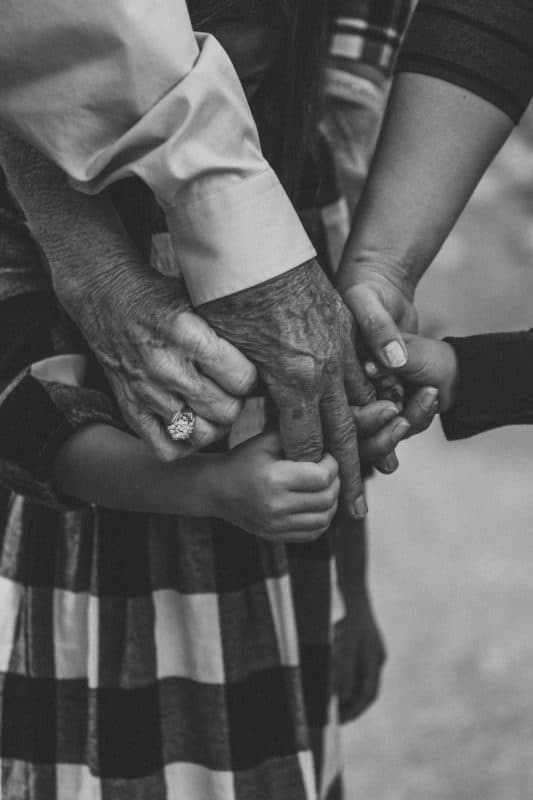
Talking to your family about your final wishes can be difficult. It’s not easy to talk about death. The thought of a loved one dying–or of facing death yourself–is full of emotions and finding a way to talk about it can be challenging. It’s a topic we often shy away from, hoping that our loved ones can intuit what we think or what we want without having to say the words that sometimes seem impossible to say.
But in reality, the opposite is true. Talking about death–and your final wishes–can actually be an immensely loving, trusting gift to those you love. Or, if you’re in the position of taking care of someone facing death or simply getting older, it can be a way to show that you care about their wishes enough to endure what can be a tough conversation.
Why It’s Important to Discuss Final Wishes
Some folks have a pressing reason to discuss their final wishes. Perhaps they’ve received a dire diagnosis or they’ve been in an accident. The urgency that accompanies those circumstances can make having this conversation a little bit easier; it’s clear, in those situations, that time will soon run out.
But there are other reasons to initiate this conversation with your loved ones. Perhaps you’re aging and want to alleviate the stress of wondering what might happen were you to pass unexpectedly. Or maybe you just want to be sure you take all the burden off your loved ones by expressing your wishes now. No matter the reason, talking to your family about your final wishes can be a rewarding, compassionate act of love.
That’s not to say it might not be difficult. Tears may still be involved. It might be challenging to say everything you’re thinking. But thinking about this conversation before you broach the subject can help.
How to Have an Uncomfortable Conversation with Someone You Love
No matter the topic, there are some general guidelines that can help you navigate sensitive subjects with those you love. As you think about telling your family your final wishes, keep these things in mind:
It might take more than one try to have the conversation. You might start talking about end-of-life plans only to be met with high emotions and heightened reactions. If there is not a pressing need to express your wishes, consider coming back to the topic another time.
If starting the conversation is difficult, you might consider using family photos or heirlooms as a launching point. Reminiscing about deceased family members or family traditions can help your loved ones understand what you value and how you envision your end-of-life plan. This isn’t to say that you should leave your thoughts to interpretation; rather, sharing memories or family stories can help you lead into a conversation that might be difficult to enter.
Practice can help. If there’s someone you trust who is willing to listen as you practice what you want to say, it might be helpful to practice before talking to close family members.
Remember to listen to how your loved ones respond. This is a conversation, after all. While your goal might be to ensure they know what you want when your time comes, it’s also important to listen to their thoughts. It might spark conversation and help them understand your wishes.
Your Final Wishes Checklist
As you organize your thoughts and decide what you want to say to your loved ones, it can help to write those ideas down first. While everyone’s conversation will be different, depending on the dynamics of the relationship and personal circumstances, there are certain common considerations that you’ll want to cover, including the following:
What type of funeral or service do you want. Do you want a religious ceremony? Do you want certain flowers or a certain song? Do you want a certain photo in the program–do you want a program or remembrance card at all?
Do you want to be buried or cremated? If cremated, do you want someone to be given your cremains or would you prefer they be scattered or buried? If buried, have you purchased a plot somewhere?
Have you consulted the experts: an attorney (to discuss your estate and draft your will), your insurance agent (for life and burial insurance), your doctors (for a health directive or living will), your funeral director.
Organizing Your Final Wishes
While you don’t need anything formal like an end-of-life worksheet or a final wishes planner, it is a good idea to document your wishes in writing. Doing so will help your loved ones remember your wishes. It can also alleviate any uncertainty they might feel as they are grieving your death.
Putting your wishes in writing can be as simple as typing (or writing) a document with a list of your wishes. Be as specific as you can; doing so is a gift to your loved ones. Mentioning specific details can help them in their time of grief; for example, knowing that you want to be buried in your favorite pink suit can relieve them of the stress of choosing your clothing for the service.
In addition to your wishes for a funeral or memorial service, you should keep legal and medical documents in an easy to access place. If you feel uncomfortable keeping them in your home (or if you live in an aging community home or other place that limits your privacy) you might consider having your attorney keep the documents for you, or putting them in a safety deposit box at the bank. Just be sure to leave instructions so your loved ones know who to call or where to look to access the paperwork.
The same is true for financial and other accounts. Keep a master list of user names and passwords in a safe place so loved ones can cancel accounts when the time comes to do so. Being organized now will save your loved ones from the stress of worrying about your affairs while they’re grieving your loss.
Let Us Help
We specialize in pre-planning services and help families every day navigate the grief of losing a loved one. We’d be honored to help you and your family as well. We’re here to answer questions and to be a resource; reach out if we can help.




Recent Comments